Planting Memories: How Riverside's Friendship Grove preserves the spirit of 'Auld Lang Syne'
As Riverside welcomes 2024, we revisit the enduring legacy of Friendship Grove, a testament to the city's century-long tradition of honoring cherished bonds and distinguished visitors.

At the beginning of this week, on Monday, we ushed in another new year, 2024, and marked 2023 as history. A very common tradition is to sing the old Scottish song “Auld Lang Syne” at the stroke of midnight and the passage of time from one year to the next. The poem, credited to Robert Burns, begins with the rhetorical question:
Should old acquaintance be forgot,
and never brought to mind?
Should old acquaintance be forgot,
and auld lang syne?
The phrase “Auld Lang Syne” means “long time since” or, less literally, “days gone by” or “long time past.” The rhetorical question that follows seeks as its answer that one should not forget old acquaintances or friends.
In the past, Riverside showed that the city and people did not forget old friends who came to Riverside with Friendship Grove. M. K. Schoenthal, managing secretary of the Riverside Chamber of Commerce in 1928, envisioned the idea of this “Friendship Grove.” In this grove in Low Park, famous men and women who visited Riverside could plant a tree and be remembered. Low Park is the often-overlooked, small triangular park located just north of Arlington Avenue and bordered by Magnolia Avenue, Tibbetts Street, and Palm Avenue.
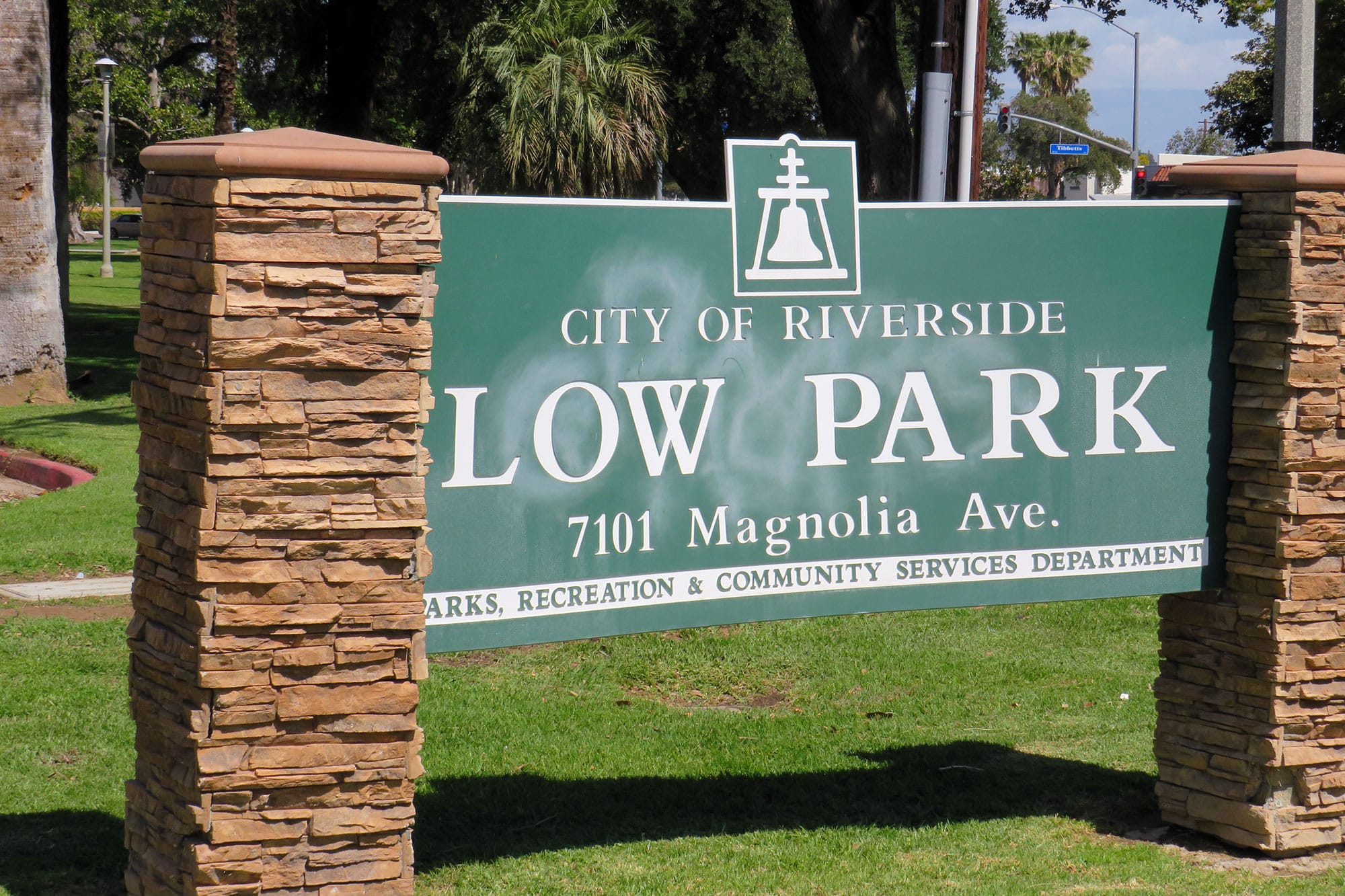
The first three chosen for this honor were Dr. Henry Van Dyke, Zona Gale, and Joseph Lincoln. The tree-planting ceremony took place on the afternoon of March 7, 1927. DeWitt Hutchings served as Master of Ceremonies for the event. Hutchings was the son-in-law of Mission Inn owner Frank A. Miller and was active in the Chamber of Commerce and many other Riverside groups. Park Superintendent R. C Hendricks had chosen three palms for this event.
A popular author and writer, Miss Zona Gale planted the first tree. She often came to Riverside and stayed at the Mission Inn. Like Frank Miller, she had been born in Wisconsin. Gale became the first woman to win the Pulitzer Prize for Drama in 1921 with the dramatization of her earlier novel, Miss Lulu Bett. Later, in 1938, she published Frank Miller of Mission Inn, the early biographer of Miller.
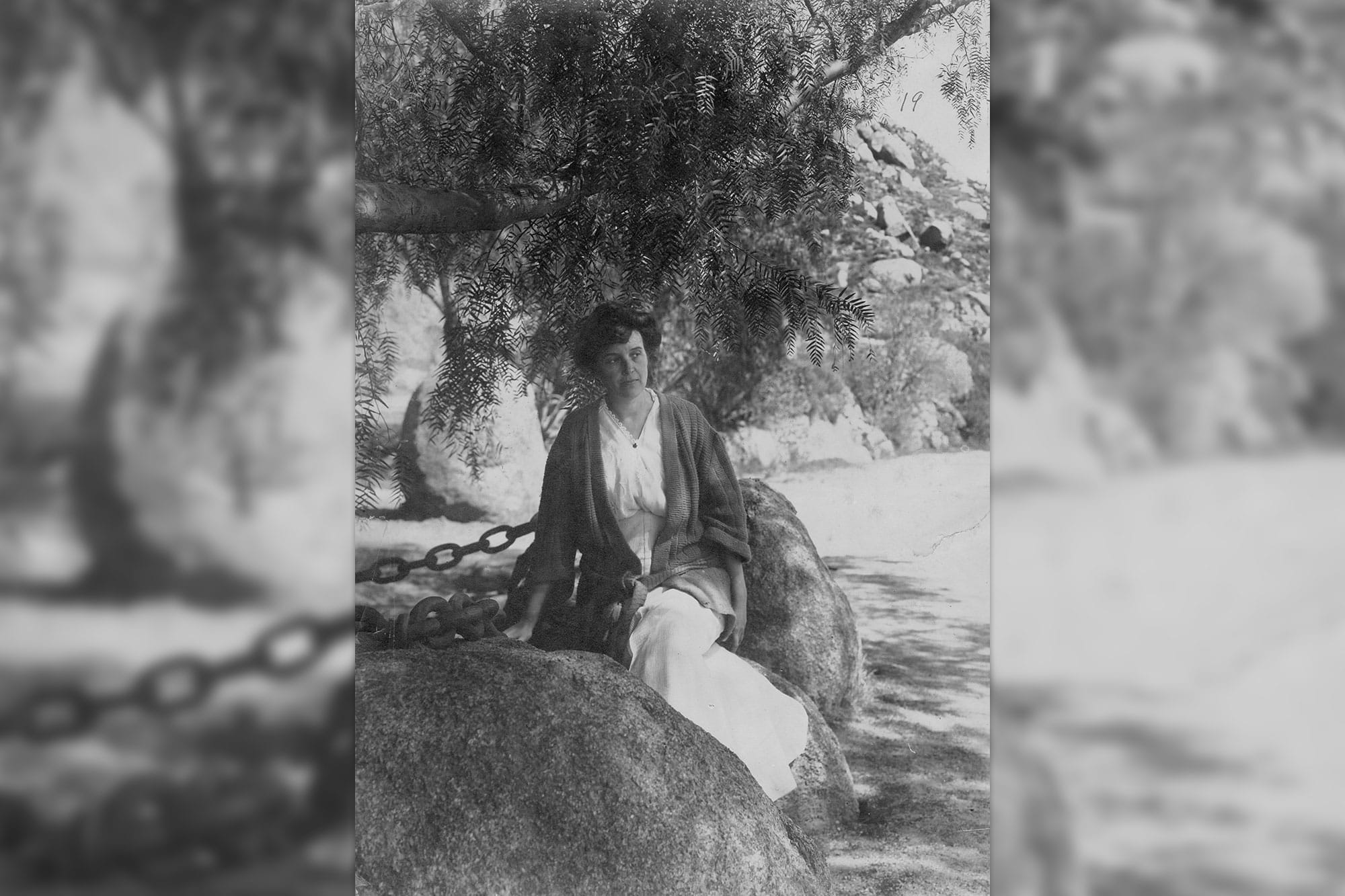
Dr. Henry Van Dyke was a Presbyterian minister and an English literature professor at Princeton University and had been a teacher to DeWitt Hutchings. Beginning in 1911, his poem, “God of the Open Air,” was read annually, often by Hutchings, for the Sunrise Easter Service on Mount Rubidoux. On Easter Sunday in 1935, a memorial plaque was unveiled near the summit of Mount Rubidoux in honor of Van Dyke by his son, Tertius, who read his father’s poem that year. Van Dyke himself read the poem for the service, first in 1913 and then again in 1927, the year of the tree planting. Van Dyke remarked at the ceremony that he was always glad to plant a tree - provided someone else would dig the hole.
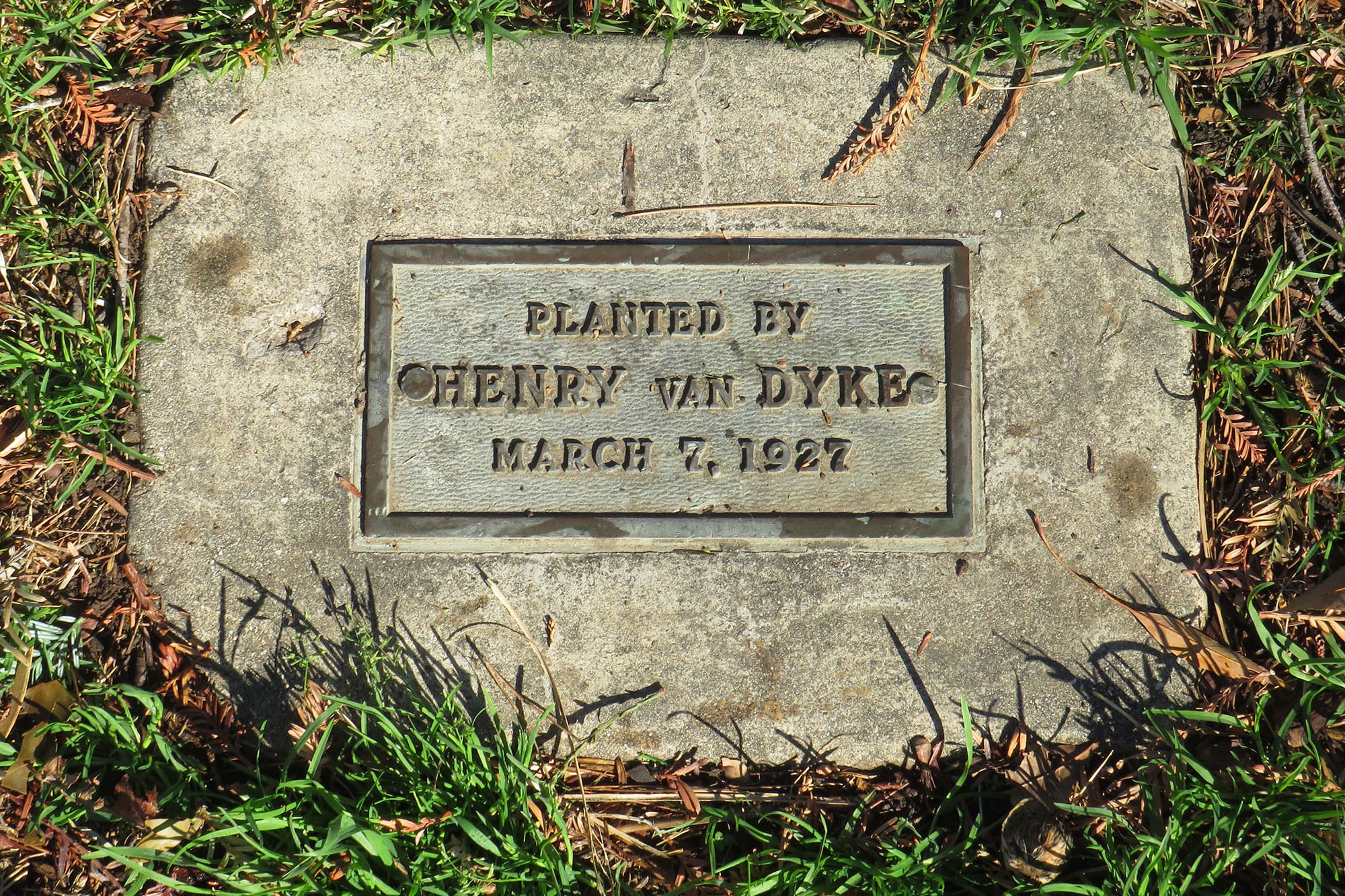
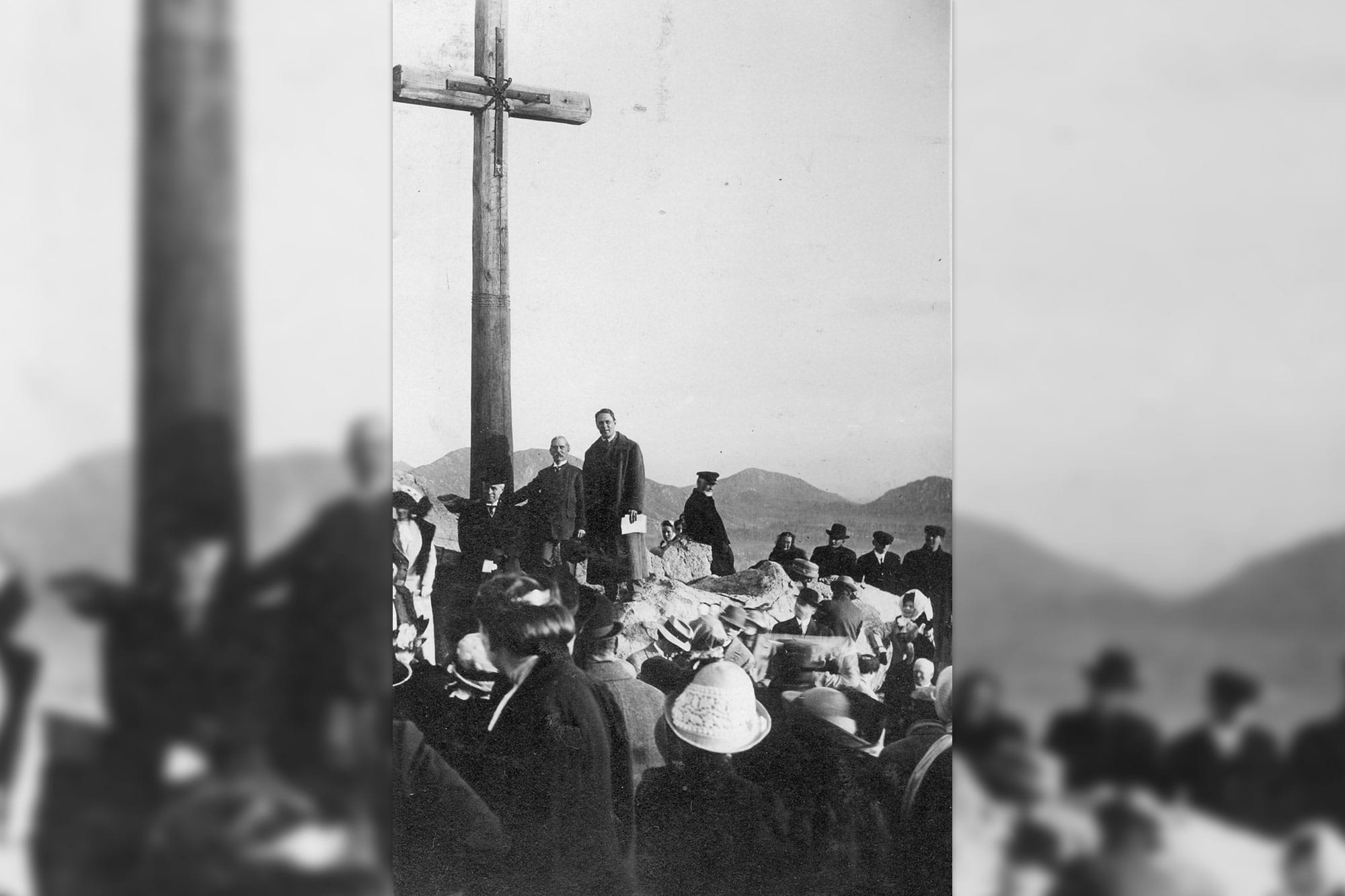
The Henry Van Dyke plaque at Low Park (Glenn Wenzel/Gazette) and Henry Van Dyke standing just to the right of the cross on Easter Sunday, 1913 (Courtesy of the Museum of Riverside).
The third member of this initial group, Joseph Lincoln, was the author of the Cape Cod stories. Lincoln was born in Brewster, Massachusetts, on Cape Cod. He set many of his novels in that setting, presenting a view of old New England Yankee lives. One of his books, The Partners of the Tide, was adapted into a silent movie by Irwin Willat. The film was shown at the Grand Theater in Riverside in April of 1922 while Lincoln visited the city (The Grand later became the Rubidoux Theater at 3827 Main Street). He stayed at the Mission Inn on several occasions and often gave local talks on writing. After planting his tree, he remarked:
“When I return to Riverside in future years, and I hope to come often, it will be a great privilege to come to this beautiful park and see how my tree is growing. I shall expect you people of Riverside to take good care of my tree. (Daily Press, March 8, 1927).”
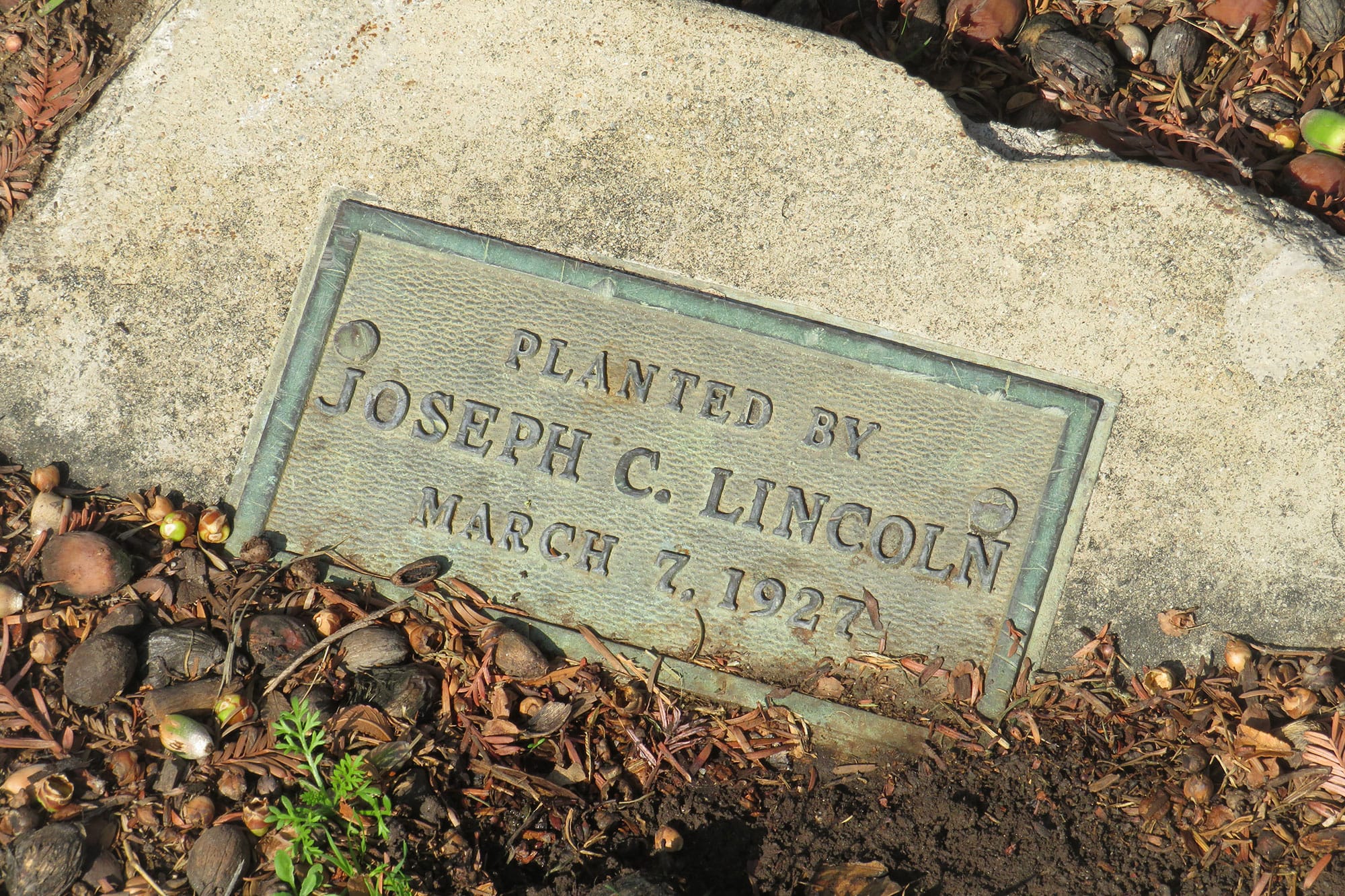
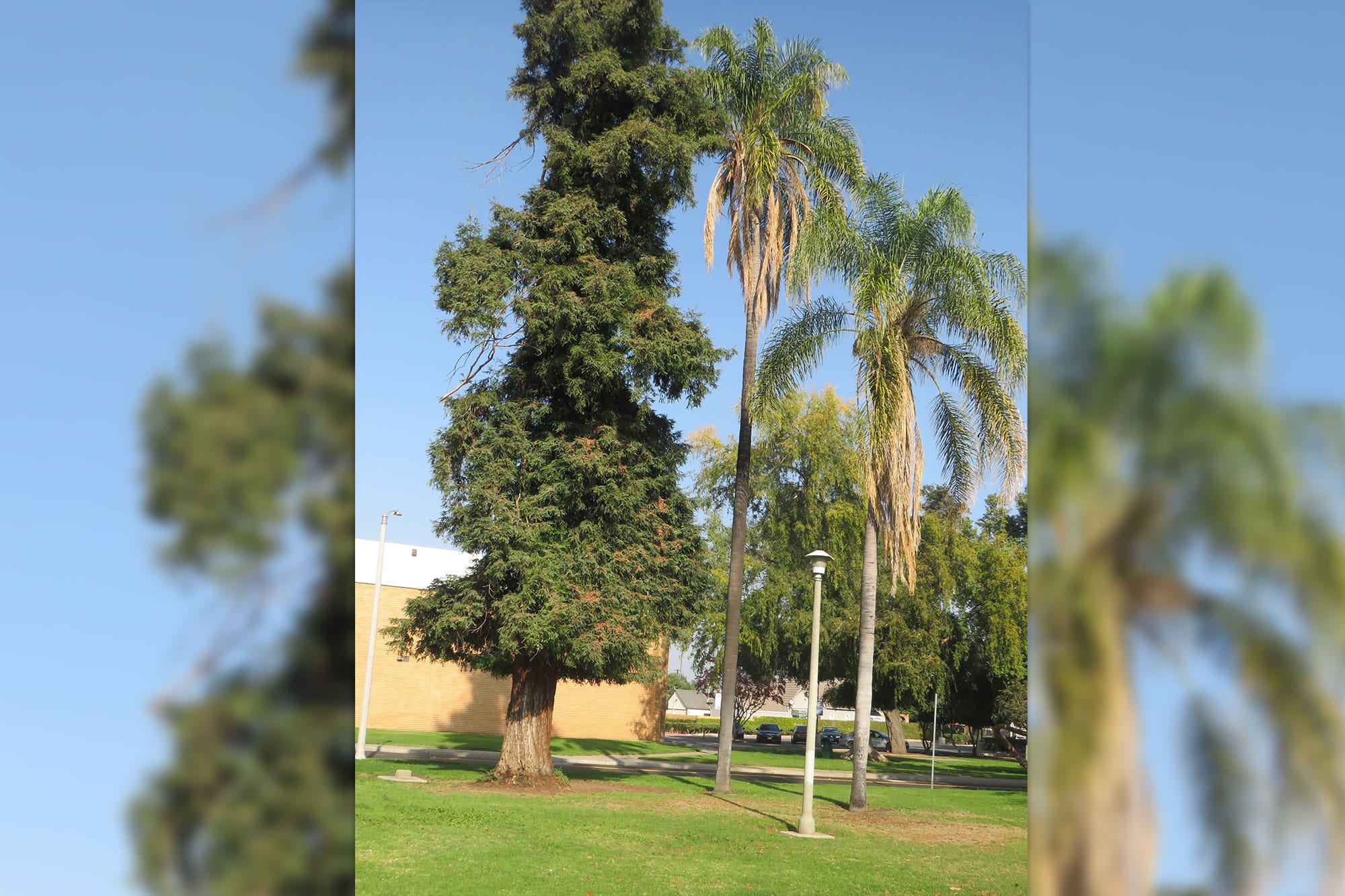
The Joseph Lincoln plaque and palm tree at Low Park (Glenn Wenzel/Gazette).
Following planting the palm trees, the names of the three participants were etched in the shovel that was used, giving the implement considerable historical value in years to come. Bronze tablets were cast and, by the end of August of that year, were set in cement near each tree as a lasting memento of the visit of the three distinguished persons who planted the trees and were friends of Riverside.
The very next year, in 1928, when Authors’ Row was added to the Mission Inn, Henry Van Dyke (Room 415), Zona Gale (Room 409), and Joseph Lincoln (Room 411) all had rooms named in their honor.
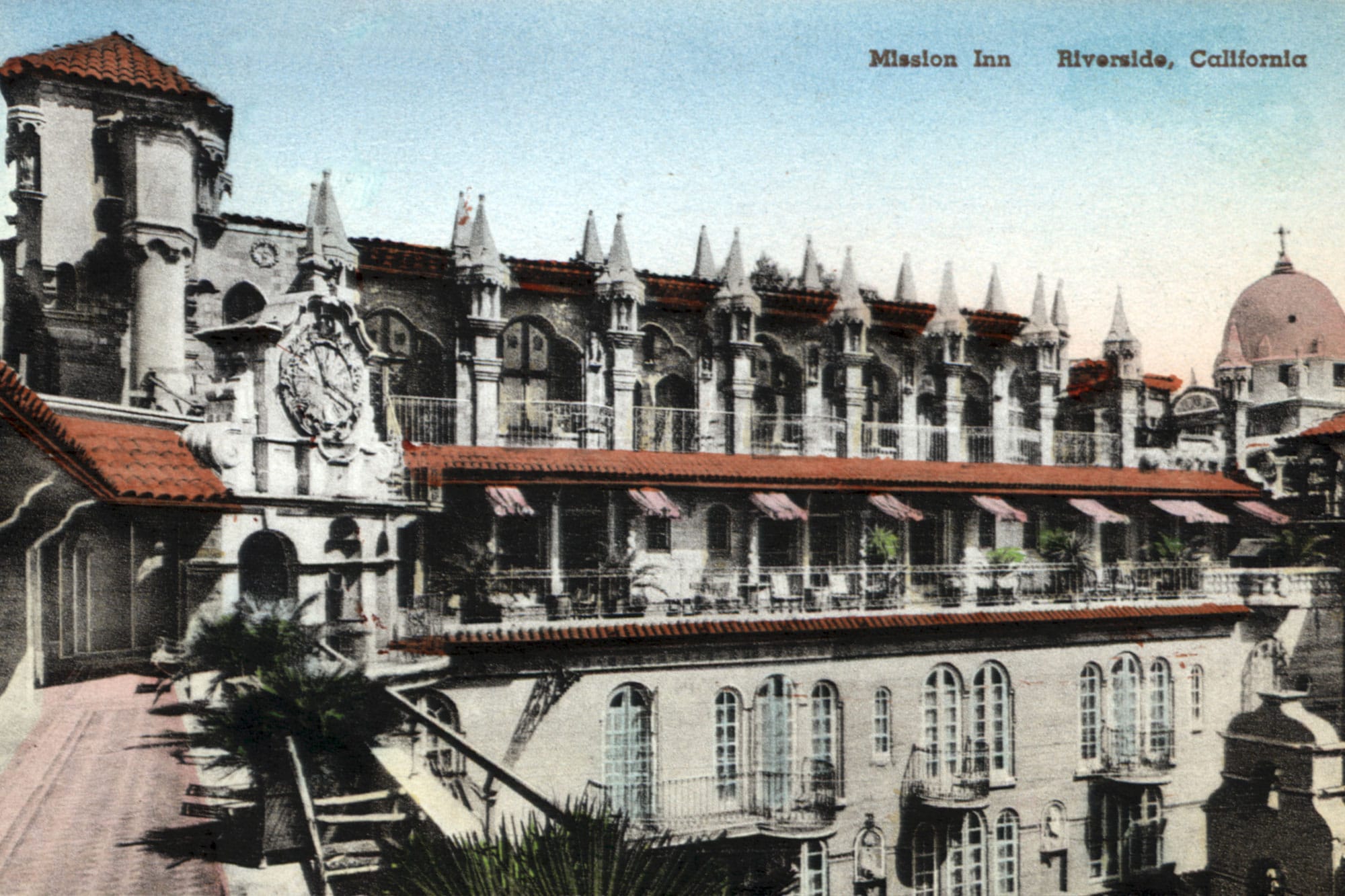
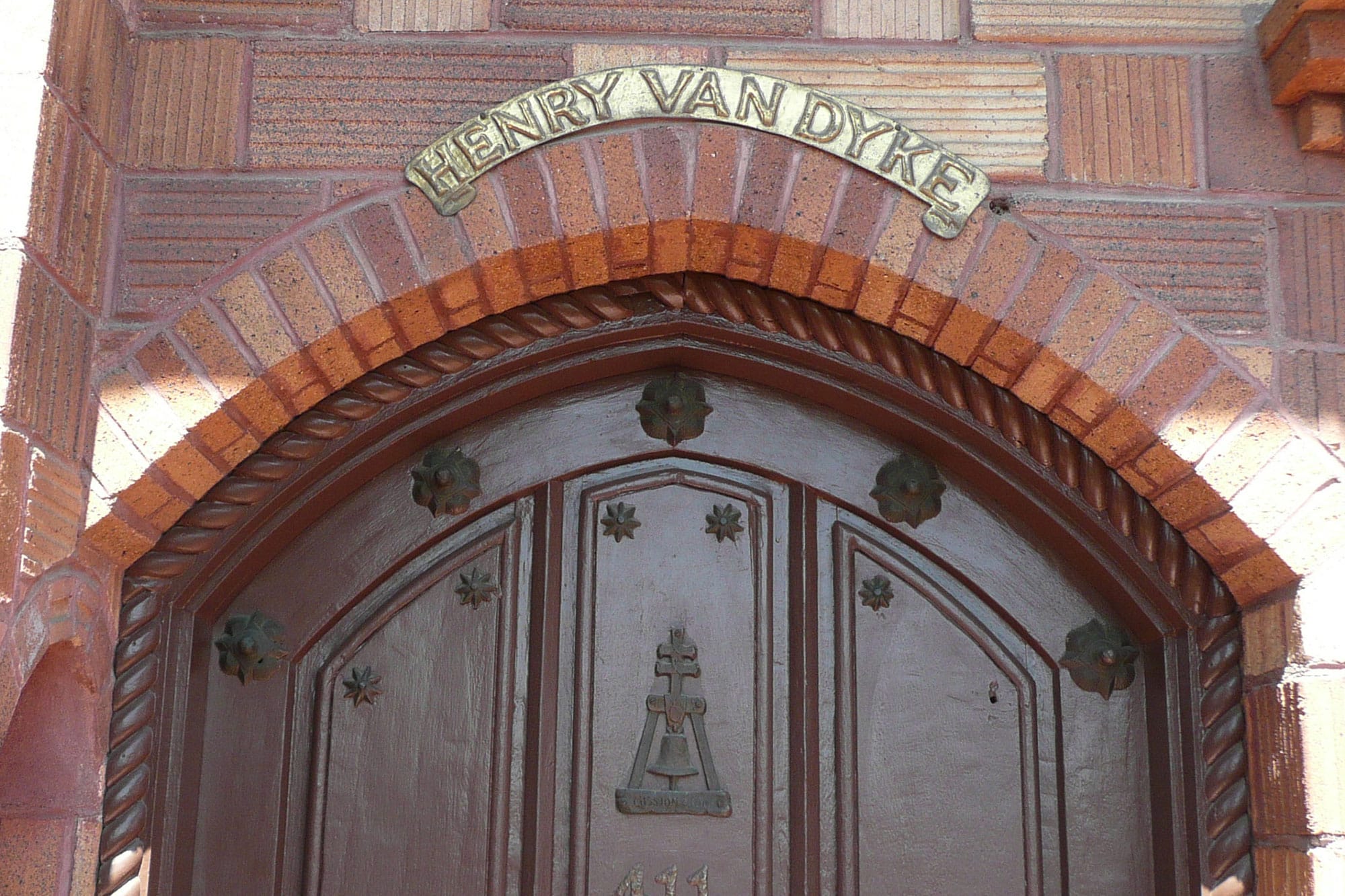
A postcard of Authors’ Row, the uppermost level pictured (Courtesy of Steve Lech), and the Henry Van Dyke Room on Authors’ Row at the Mission Inn (Glenn Wenzel/Gazette).
Over the years, there were more tree plantings and tablets at Low Park as Friendship Grove grew in size and significance. In the early years, the ceremonies were for noteworthy people who visited Riverside. In contrast, in later years, the trees commemorated important Riversiders.
As we begin this New Year of 2024, we look back into history and fondly remember many of the friends we have made over the years. However, we can also look forward to more time with many of those friends and the many new friends we will meet. Friendship between people is essential and worthy of our memories. Would it not be wonderful if there was friendship between all people?






